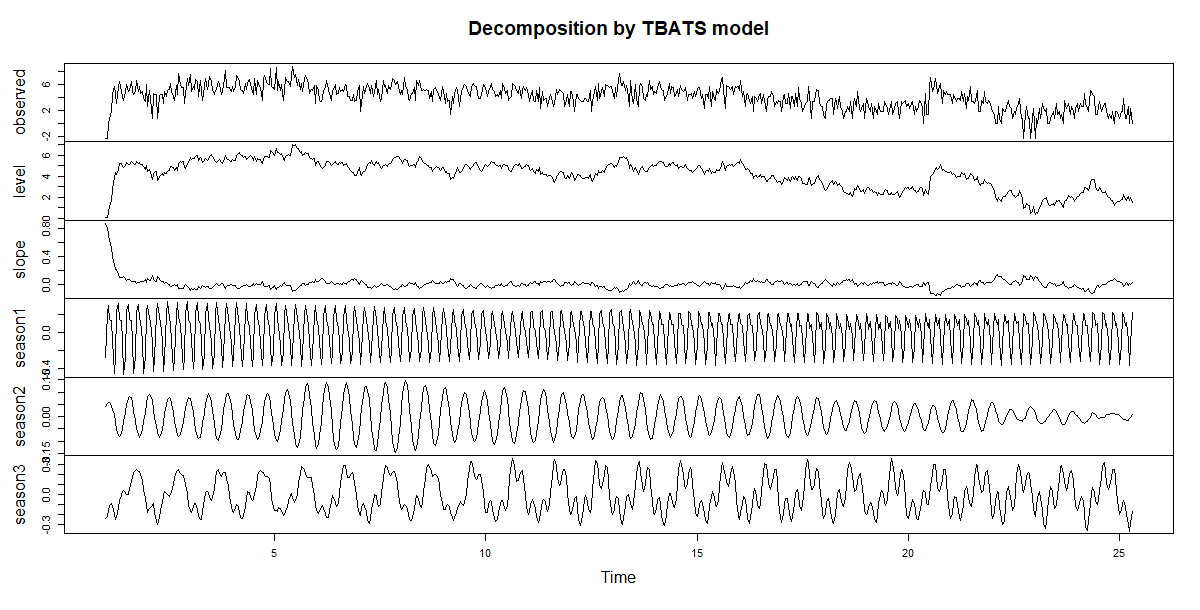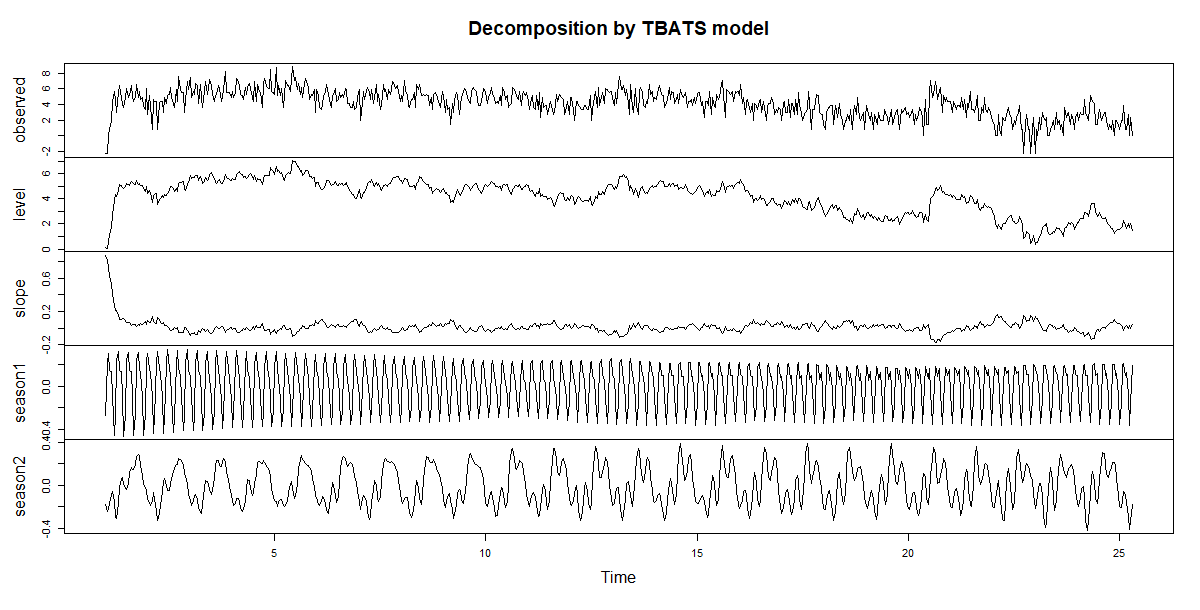I am doing exploratory data analisis with TBATS decomposition, to get understand better seasonal patterns behind number of booking. One of my coworkers proposed that there is two weekly seasonality, because frenchmen get salaries every two weeks. I was using TBATS decomposition. However I noticed that no matter which argument I'll use in seasonal.periods, they will appear on graph with better and worse effect.

How do I figure out which seasonal periods are real?
In other case I was playing with time series of air temperature in Berno. To my suprise, TBATS detected weekly and monthly seasonal periods. If we think about it temperature should only have yearly and daily periods, maybe weekly due to human activity, but monthly?
Is that even legit?

